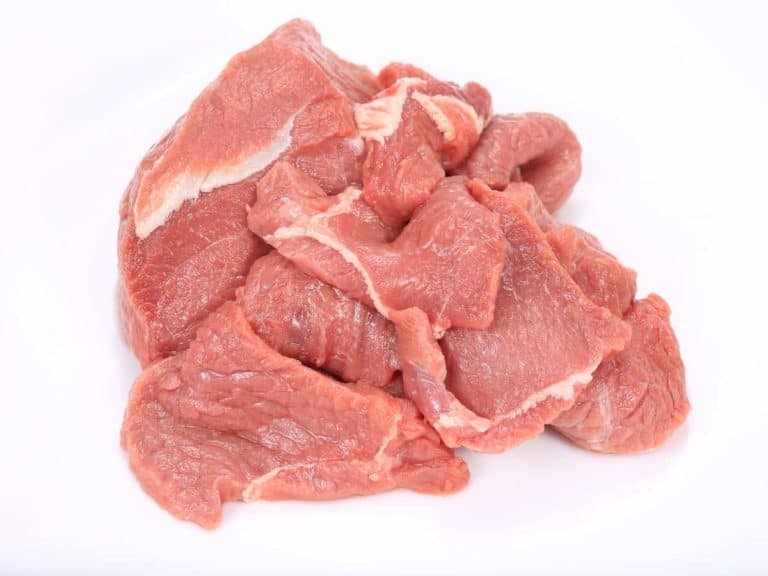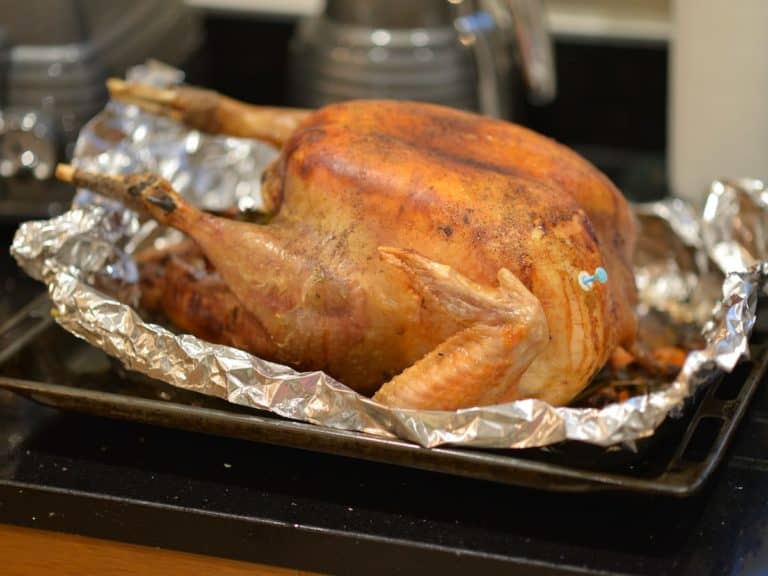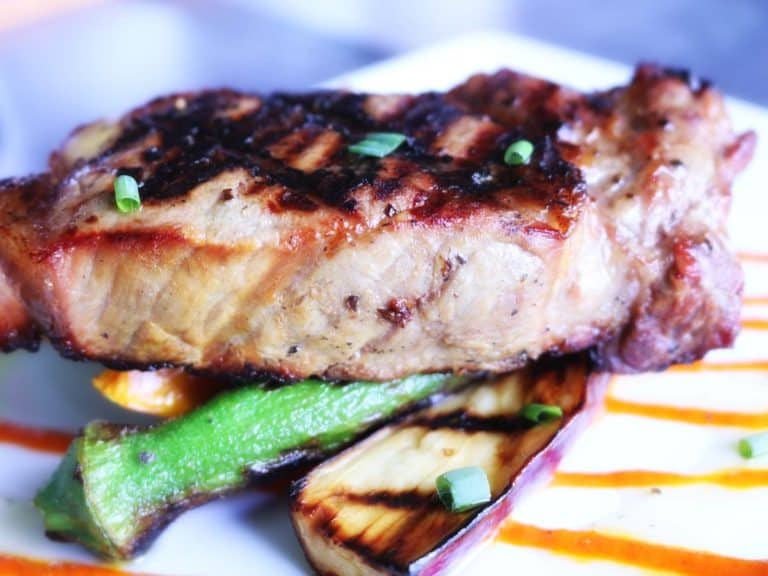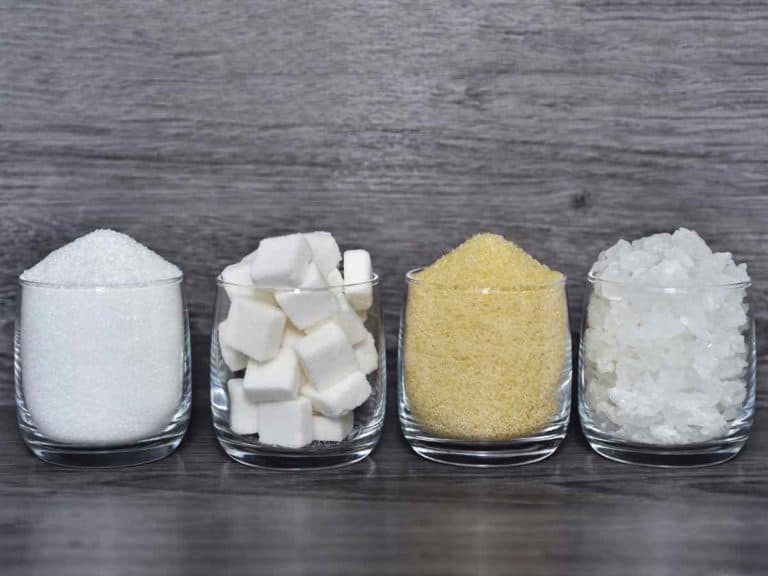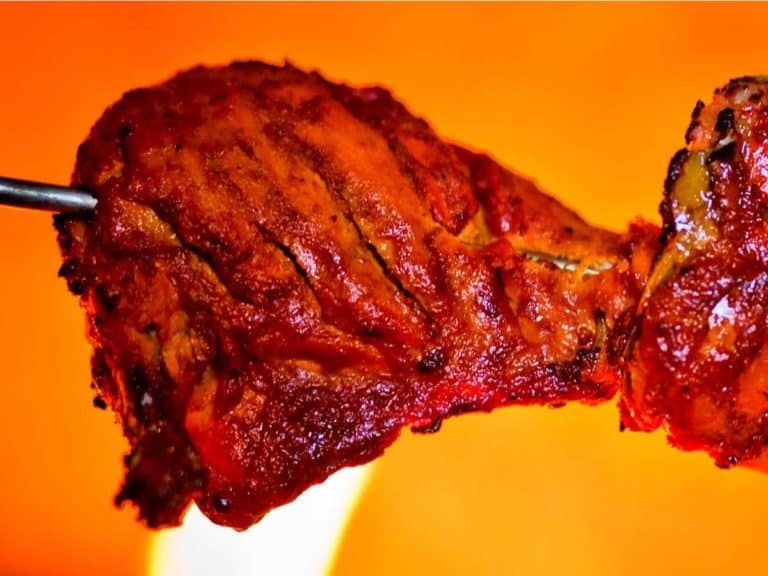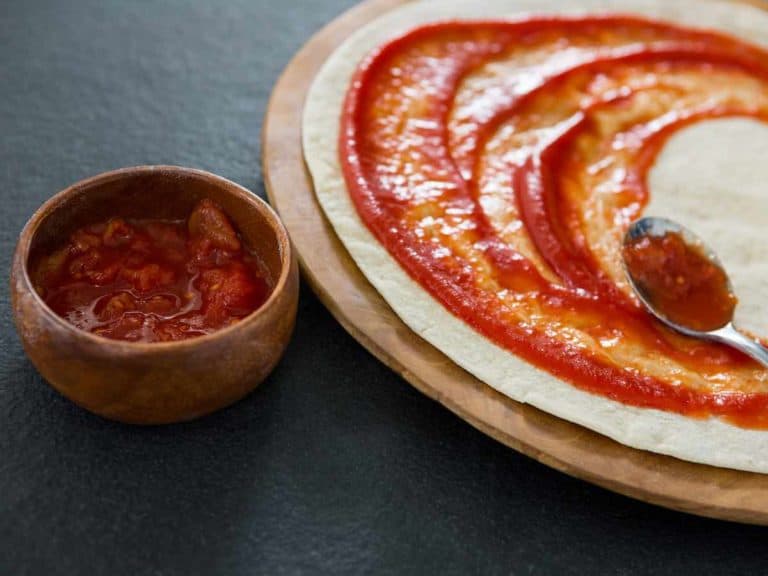Is It Good to Boil Chicken Before Baking?
So, you are prone to serving baked chicken that’s either undercooked or overcooked. You might have read online that boiling the chicken before baking can keep everyone from eating chicken that’s either bloody and dense or dry and tough. But is it really a good idea to boil chicken just before you pop it into the oven?
Boiling chicken before baking can help make sure that the chicken is well-cooked. Boiling it beforehand can also help see to it that the meat is moist and tender and the skin is crispy. Seasoning during boiling or marinating quickly after boiling can make the chicken to be baked more flavorful.
Read on before you attempt to boil and bake that chicken and wow your guests!
How Long Should You Boil Chicken?
Boiling chicken can take anywhere from as short as 15 minutes to as long as 40 minutes. The boiling time will depend on a few factors such as the size of the cuts of chicken and whether or not the chicken is frozen or completely thawed. It will also depend on how long the chicken will be baked afterward.
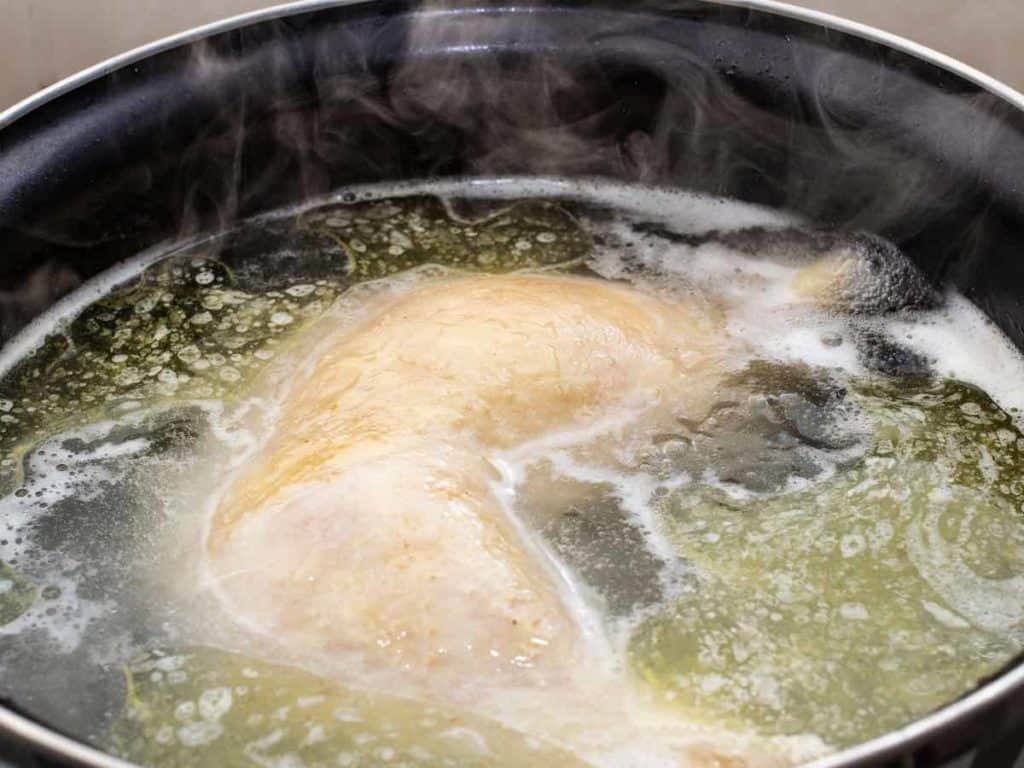
It’s important to boil the chicken properly. Boil it too fast and you might end up with chicken that’s jiggly, dense and bloody. Boil it too long and you might wind up with tasteless, dry and rubbery chicken.
Fortunately, it’s not that difficult to boil chicken — one look at it and you will know how long to boil it.
Chicken breasts take 15 to 20 minutes to boil. On the other hand, chicken wings, thighs and legs take 20 to 30 minutes to boil. An entire chicken, meanwhile, takes around 40 minutes to boil. As a general rule of thumb, you should add 10 minutes to the boiling time if the chicken is frozen and you have no time to let it thaw completely.
Generally speaking, switching off the stove when the chicken being boiled is undercooked is so much better than when it is overcooked. If it’s undercooked, all you have to do is boil it some more until it’s finally well-cooked.
If it’s overcooked, on the other hand, there’s pretty much nothing you can do to save it.
That is why you should consider checking the chicken, especially if it’s cut into small pieces, 15 minutes after boiling it and then every 5 minutes afterward — as they always say, better safe than sorry.
Health-conscious and want to keep the risk of food poisoning low? Then grab a thermometer and check that the temperature in the thickest part of the chicken registers at 165°F (73.9°F). When this temperature is reached, you can be 100% certain that the chicken is not only safe to eat but also cooked thoroughly.
Do You Season Chicken Before, During or After Boiling?
Chicken is best seasoned while boiling it. After adding enough liquid to the pot in order to cover the chicken, season with salt and pepper. Adding herbs or spices infuses the chicken meat with their flavor and aroma. Chicken may be boiled with some vegetables, too, like carrots, corn and asparagus.
The main reason for boiling chicken before baking it is to make sure that you get to serve chicken that’s not only tender but also well-cooked — some of your guests may not like eating bloody chicken!
Boiling chicken before putting it in the oven is also an opportunity to make it more tasteful and palatable.
Especially if you have skipped the process of marinating the chicken beforehand, seasoning it while boiling it is a great way to introduce some flavors into the meat. In many instances, adding a little salt and pepper is enough to make a world of difference and make your baked chicken dish go from normal to phenomenal.
Besides salt and pepper, you can also toss some herbs and spices and even some vegetables into the pot when boiling the chicken — now is the perfect time to make sure that you won’t serve a boring and forgettable dish.
Some of the herbs and spices that you can add to the liquid include:
- Bay leaves
- Celery seeds
- Chili powder
- Cilantro
- Cumin
- Garlic
- Ground mustard
- Marjoram
- Onions
- Oregano
- Paprika
- Parsley
- Rosemary
- Tarragon
- Thyme
- Sage
It’s not just the chicken meat that can have a ton of flavors with the help of herbs and spices but the liquid, too, which you can use for making sauces that will go really well with the baked chicken dish.
You may also use the liquid for making soup that you can serve with the main dish. If this is the goal, consider boiling the chicken with some vegetables the soup you are planning to make eventually could use. This will not only make the soup delicious, nutritious and colorful but also infuse the chicken meat with their flavor.
Especially if you skipped the marinating part altogether, you may also boil the chicken in water with soy sauce, fish sauce, liquid aminos, coconut aminos, Worcestershire sauce or any other liquid seasoning of your choice.
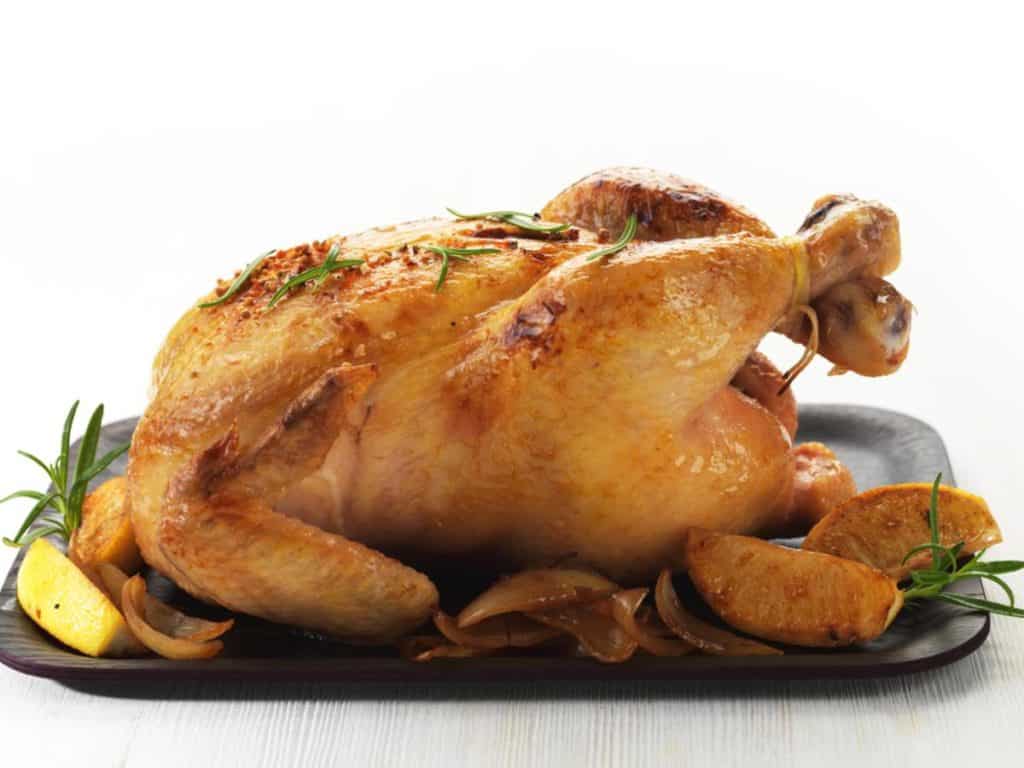
Can You Marinate Chicken After Boiling?
Marinating chicken after boiling is possible. Boiled chicken can be soaked in the marinade. However, one can also brush it with the marinade. It’s important for the marinade to have enough liquid such as soy sauce, wine or honey in order to keep the chicken from drying out, which can result from boiling.
Refrain from assuming that marinating can be done only before cooking the chicken.
Not too many people are aware of the fact that chicken can be marinated, too, after cooking it. This is especially true if the chicken is pre-cooked for the purpose of avoiding serving an undercooked dish.
Earlier, we established that boiling chicken before baking can help maintain good moisture levels. Well, marinating the chicken after boiling it can introduce added moisture into the meat, thus making sure that the chicken will be far from being dry and rubbery after taking it out of the oven.
But it’s important to note that you should avoid marinating already boiled chicken for a long time.
That’s because it can cause the meat to become mushy. As a matter of fact, in many instances, marinating boiled chicken for around 10 minutes only is usually more than enough to make it more moist and flavorful.
Instead of soaking boiled chicken in the marinade for a while, you may also simply brush the marinade on it. Doing so will add flavor to the outside of the chicken and help lock in moisture, too. Brushing the boiled chicken with the marinade is a wonderful idea if you are in a rush to cook the chicken as your guests are already on their way.
But make sure that you brush the chicken that’s already boiled with a fresh batch of marinade — using one that’s already been used for marinating is unsafe as it can cause food poisoning.
Just Before You Attempt to Boil Chicken
Boiling chicken before baking allows you to serve chicken that’s golden brown and crispy on the outside and tender and juicy on the inside. So, in other words, it lets you serve something that’s perfect!
However, boiling can also make or break a chicken.
Make sure that you boil the chicken the right way, and you can rest assured that it will come out of the oven afterward looking and tasting unforgettable. You may also consider seasoning the chicken while boiling it or marinating it quickly after boiling and just before you pop it into the oven for the most appetizing masterpiece.
Related Questions
Why is boiled chicken sometimes rubbery?
In most instances, boiling chicken for too long a time can cause it to become rubbery. That’s because overcooking can draw out moisture from the chicken, leaving the meat dry and tire-like. Soaking the chicken in salty water before boiling it can increase moisture content, thus keeping it from drying out.
Does boiling chicken reduce its nutrient content?
Many nutrients in chicken are water-soluble, which means that you can lose them by boiling chicken, especially for a long period of time. To prevent the nutrients in the chicken from going to waste, keep the boiling time short and use the water from boiling the chicken to make sauces or soups.
